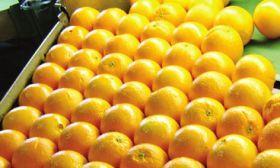
Australia’s Murray Valley Citrus Board (MVCB) will cease its operations over the coming weeks, after the Victorian Government chose not to challenge a Supreme Court ruling which prevents the mandatory imposition of a levy on fruit growers, according to the ABC.
The civil action was brought upon the MVCB and the Victorian State Government by citrus exporters Seven Fields and Wiffen Holdings, who questioned the purpose of the levy, which saw the board recoup A$5.50 (US$5.23) from every tonne of fruit growers produced.
While the Supreme Court ruling allowed the board to continue operating, chairman John Tesoriero said the organisation would not survive without the levy, which generated two-thirds of its income.
Victorian agricultural minister Peter Walsh said the government was acting on advice from the Murray Valley citrus industry.
“The board will now, and they have already started, take steps to wind up their activities, disposing of their assets, releasing staff and refunding the charges that were collected on citrus growers for the last financial year,” Walsh told the ABC.
The MVCB had operated in the Sunraysia region - on the Victorian, New South Wales boarder - for 24 years, and was the last regional citrus board in Australia.
It played a leading hand in establishing and maintaining the Sunraysia pest-free area. Walsh said the Sunraysia table grape, citrus and stonefruit industries were now banding together to stress the importance of keeping the fruit-fly free area in place.
“They are all going to petition or write to me as the Minister and ask me to start the work to have a new levy put in place to specifically fund the pest-free area,” Walsh said.
“I think government and industry are all in heated agreement about the need to keep the pest-free area. It's a matter of how we work out the funding arrangements between and the industry contribution.”
Sunraysia Citrus Growers chairman Vince De Maria told the ABC the region could not afford to lose its fruit-fly free status.
“We'd be in a regime of cold treatments for a lot of export fruit so the costs would be prohibitive and be very onerous on growers,” De Maria said.



